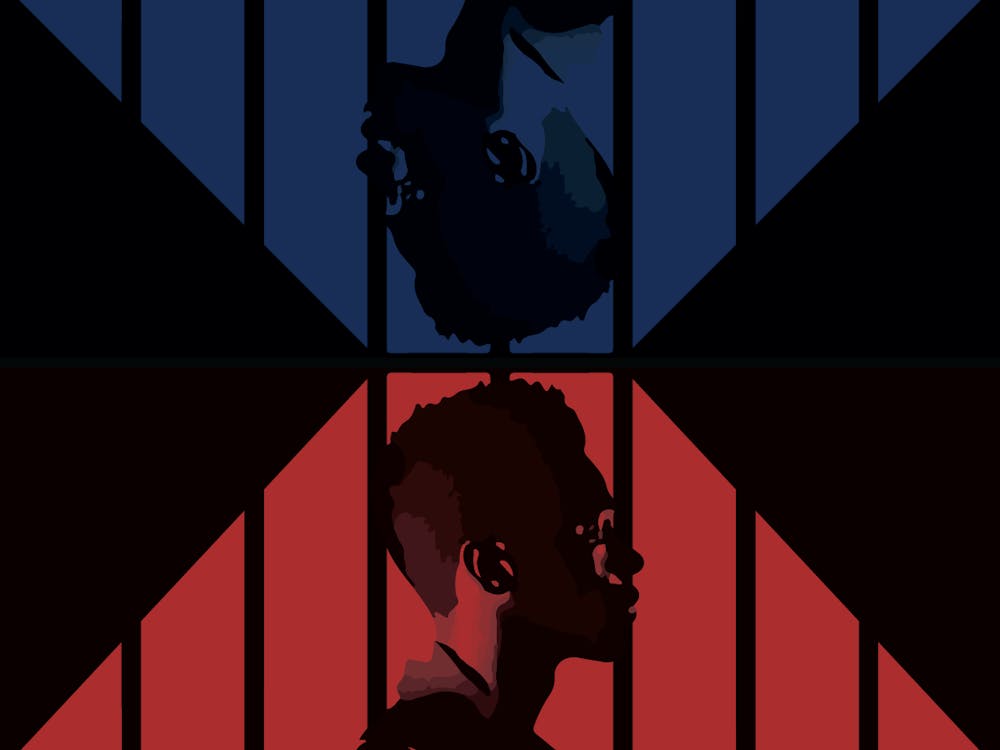Mikhail Lawson, then 14, was charged as an adult for a Feb. 19 armed homicide-robbery case accompanied by two others at Pointe 23 apartments in Gainesville.
He’s facing a capital felony which could give him life in prison.
His parents, Tamelia Young and Malcolm Lawson, said the incident was a wrong time, wrong place ordeal.
“That's not the kind of kid he is. He's just not the kind of kid to rob,” said 43-year-old Tamelia Young. “He was having a hard time even grasping this, like he really didn't think they were serious, because he's like, ‘I didn't do it. They're gonna send me home.’”
From fiscal years 2018 to 2022, 3,996 minors like Mikhail Lawson have been transferred to the adult judicial system. During the same period in the 8th Judicial Circuit, 132 minors have been taken to criminal court, with approximately 63% being Black, according to the Florida Department of Juvenile Justice.
Lawson had no priors, and his parents described him like any other 14-year-old boy who played video games, basketball and hung out with his siblings. He was a jokester in school and attended church.
Young said when her son got arrested it was one of the worst days of her life.
“It was very scary. It was just heartbreaking,” she said. “I haven't had my son home since they kept him in and charged him. And it's like, he's 14.”
The other minor involved in the incident was released on a plea deal, Young said. Her son also got a plea deal but was revoked.
Mikhail’s father, Malcolm Lawson, said without significant amounts of money, finding proper representation for his son is difficult.
“They don’t do it to people that have the resources to fight these charges, because if we had the resources, he wouldn’t be where he’s at right now,” Lawson said.
The process of trying a minor as an adult is a direct file statute, which gives most discretion to the state attorney on whether to transfer a minor to criminal court without review from a judge.
Brian Kramer, state attorney for the 8th Judicial Circuit, said the crime's severity, the minor's prior record, the programs the minor went through and the family's wishes all factor into sentencing. Whether the state has exhausted all rehabilitative programs factors in too, he said.
Based on each case, some minors have the opportunity to go to facilities that jail people between the ages of 18 to 24 years old, which he said may be a worse option than housing minors with older adults.
“I just don't know if that's actually safer,” Kramer said. “People who are that age group tend to be far more impulsive than people who are 60 to 80.”
The 8th Circuit Court offers diversion programs for adults such as Adult Felony Drug Court, Mental Health Court and Veterans Treatment Court. Alachua County offers Teen Court, a diversion program for minors.
Poverty pushes people into crime and gang affiliation; however, the Alachua County government isn't investing enough in at-risk regions in Gainesville, Kramer said.
“You had the opportunity to help a need, you know the need is there, but they keep making the decisions to not put these things into the communities that need help,” he said.
Community Spring executive director Lindsay Kallman said it isn’t fair for children to be held to adult standards in court when in every other context they aren’t.
“The idea that you would try a teenager as an adult is really just saying, ‘I'm going to try this person who's bound by these circumstances and this demographic, and then try them as something different,’” Kallman said. “We don't do that in any other context in society.”
Community Spring, a community initiative that helps impoverished and recently incarcerated people find economic stability in Alachua County, provides temporary income for the formerly incarcerated for a year and advocates for equal housing and economic opportunities.
Kallman said a lot of children who commit crime are products of their environments.
“We've lost out on the potential and talents of that person who's now being isolated from our society, as opposed to addressing the circumstances that led to the events,” she said. “There are just so many things that can be solved.”
Malcolm Lawson, Mikhail Lawson’s father, said it’s been hard for him and his family to not have his son home. He can’t imagine the type of environment his son could be in among adults.
“This is a feeling I’ve never had and I wouldn’t wish it on no other parent,” Lawson said.
Contact Lee Ann Anderson at landerson@alligator.org. Follow her on X @LeeAnnJOU
Lee Ann Anderson is a sophomore journalism major and The Alligator’s Summer 2023 criminal justice reporter. In her free time you can catch her reading articles, talking to her cat or losing her mind.






